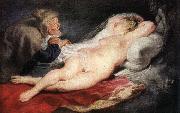Wholesale Oil Painting No Minimum |
|||||||||||
|
|
|||||||||||

|
|||||||||||
|
|
|
||||||||
RUBENS, Pieter PauwelFlemish Baroque Era Painter, 1577-1640 |
||||||||
|
|
||||||||
The Hermit and the Sleeping Angelica
The Hermit and the Sleeping Angelica Painting ID:: 64605 |
1626-28 Oil on oakwood, 43 x 66 cm Kunsthistorisches Museum, Vienna The painting is an illustration of one of the episodes of Ariosto's Orlando furioso. Artist:RUBENS, Pieter Pauwel Title: The Hermit and the Sleeping Angelica, 1601-1650, Flemish , painting , other 1626-28 Oil on oakwood, 43 x 66 cm Kunsthistorisches Museum, Vienna The painting is an illustration of one of the episodes of Ariosto's Orlando furioso. Artist:RUBENS, Pieter Pauwel Title: The Hermit and the Sleeping Angelica, 1601-1650, Flemish , painting , other |
|||||||
|
|
||||||||
|
Peter Paul Rubens Flemish Baroque Era Painter, 1577-1640 Peter Paul Rubens (June 28, 1577 ?C May 30, 1640) was a prolific seventeenth-century Flemish Baroque painter, and a proponent of an exuberant Baroque style that emphasized movement, color, and sensuality. He is well-known for his Counter-Reformation altarpieces, portraits, landscapes, and history paintings of mythological and allegorical subjects. In addition to running a large studio in Antwerp which produced paintings popular with nobility and art collectors throughout Europe, Rubens was a classically-educated humanist scholar, art collector, and diplomat who was knighted by both Philip IV, king of Spain, and Charles I, king of England. Rubens was a prolific artist. His commissioned works were mostly religious subjects, "history" paintings, which included mythological subjects, and hunt scenes. He painted portraits, especially of friends, and self-portraits, and in later life painted several landscapes. Rubens designed tapestries and prints, as well as his own house. He also oversaw the ephemeral decorations of the Joyous Entry into Antwerp by the Cardinal-Infante Ferdinand in 1635. His drawings are mostly extremely forceful but not detailed; he also made great use of oil sketches as preparatory studies. He was one of the last major artists to make consistent use of wooden panels as a support medium, even for very large works, but he used canvas as well, especially when the work needed to be sent a long distance. For altarpieces he sometimes painted on slate to reduce reflection problems. His fondness of painting full-figured women gave rise to the terms 'Rubensian' or 'Rubenesque' for plus-sized women. The term 'Rubensiaans' is also commonly used in Dutch to denote such women. The Hermit and the Sleeping Angelica between 1626(1626) and 1628(1628) Medium oil on oak panel cyf |
||||||||
|
|
||||||||
|
Prev Next
|
||||||||
|
|
||||||||
|
Related Paintings to Peter Paul Rubens :. |
||||||||
|
|
||||||||
|
CONTACT US |

